Related Research Articles
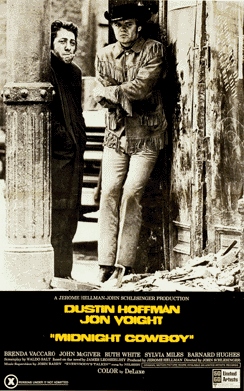
Midnight Cowboy is a 1969 American drama film directed by John Schlesinger, adapted by Waldo Salt from the 1965 novel of the same name by James Leo Herlihy. The film stars Dustin Hoffman and Jon Voight, with supporting roles played by Sylvia Miles, John McGiver, Brenda Vaccaro, Bob Balaban, Jennifer Salt and Barnard Hughes. Set in New York City, Midnight Cowboy depicts the unlikely friendship between two hustlers: naïve prostitute Joe Buck (Voight) and ailing con man Rico Rizzo (Hoffman), referred to as "Ratso".
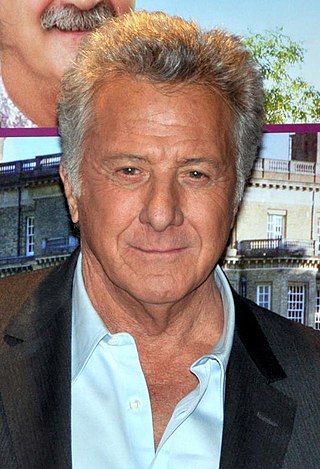
Dustin Lee Hoffman is an American actor and filmmaker. As one of the key actors in the formation of New Hollywood, Hoffman is known for his versatile portrayals of antiheroes and emotionally vulnerable characters. His accolades include two Academy Awards, four BAFTA Awards, five Golden Globe Awards, and two Primetime Emmy Awards. Hoffman has received numerous honors, including the Cecil B. DeMille Award in 1997, the AFI Life Achievement Award in 1999, and the Kennedy Center Honors Award in 2012. Actor Robert De Niro has described him as "an actor with the everyman's face who embodied the heartbreakingly human".
Magic realism, magical realism, or marvelous realism is a style or genre of fiction and art that presents a realistic view of the world while incorporating magical elements, often blurring the lines between fantasy and reality. Magical realism is the most commonly used of the three terms and refers to literature in particular. Magic realism often refers to literature in particular, with magical or supernatural phenomena presented in an otherwise real-world or mundane setting, commonly found in novels and dramatic performances. In his article "Magical Realism in Spanish American Literature", Luis Leal explains the difference between magic literature and magical realism, stating that, "Magical realism is not magic literature either. Its aim, unlike that of magic, is to express emotions, not to evoke them." Despite including certain magic elements, it is generally considered to be a different genre from fantasy because magical realism uses a substantial amount of realistic detail and employs magical elements to make a point about reality, while fantasy stories are often separated from reality. Magical realism is often seen as an amalgamation of real and magical elements that produces a more inclusive writing form than either literary realism or fantasy.

Richard Ford is an American novelist and short story author, and writer of a series of novels featuring the character Frank Bascombe.
Raymond Clevie Carver Jr. was an American short story writer and poet. He published his first collection of stories, Will You Please Be Quiet, Please?, in 1976. His breakout collection, What We Talk About When We Talk About Love (1981), received immediate acclaim and established Carver as an important figure in the literary world. It was followed by Cathedral (1983), which Carver considered his watershed and is widely regarded as his masterpiece. The definitive collection of his stories, Where I'm Calling From, was published shortly before his death in 1988. In their 1989 nomination of Carver for the Pulitzer Prize for Fiction, the jury concluded, "The revival in recent years of the short story is attributable in great measure to Carver's mastery of the form."

Granta is a literary magazine and publisher in the United Kingdom whose mission centres on its "belief in the power and urgency of the story, both in fiction and non-fiction, and the story's supreme ability to describe, illuminate and make real." In 2007, The Observer stated: "In its blend of memoirs and photojournalism, and in its championing of contemporary realist fiction, Granta has its face pressed firmly against the window, determined to witness the world."

Tobias Jonathan Ansell Wolff is an American short story writer, memoirist, novelist, and teacher of creative writing. He is known for his memoirs, particularly This Boy's Life (1989) and In Pharaoh's Army (1994). He has written four short story collections and two novels including The Barracks Thief (1984), which won the PEN/Faulkner Award for Fiction. Wolff received a National Medal of Arts from President Barack Obama in September 2015.
Kmart realism, also termed "low-rent tragedies", is a form of minimalist literature found in American short fiction that became popular in the 1980s.

Ploughshares is an American literary journal established in 1971 by DeWitt Henry and Peter O'Malley in The Plough and Stars, an Irish pub in Cambridge, Massachusetts. Since 1989, Ploughshares has been based at Emerson College in Boston. Ploughshares publishes issues four times a year, two of which are guest-edited by a prominent writer who explores personal visions, aesthetics, and literary circles. Guest editors have been the recipients of Nobel and Pulitzer prizes, National Book Awards, MacArthur and Guggenheim fellowships, and numerous other honors. Ploughshares also publishes longform stories and essays, known as Ploughshares Solos, all of which are edited by the editor-in-chief, Ladette Randolph, and a literary blog, launched in 2009, which publishes critical and personal essays, interviews, and book reviews.
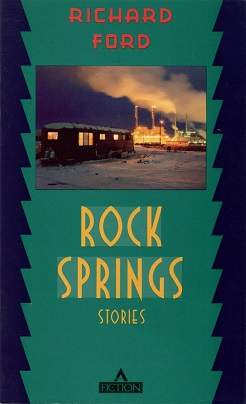
Rock Springs is the first collection of short stories by author Richard Ford, published in 1987.

Jayne Anne Phillips is an American Pulitzer Prize-winning novelist and short story writer who was born in the small town of Buckhannon, West Virginia.
Gordon Lish is an American writer. As a literary editor, he championed many American authors, particularly Raymond Carver, Barry Hannah, Amy Hempel, Rick Bass, Tom Spanbauer, and Richard Ford. He is the father of the novelist Atticus Lish.

Lynne Tillman is a novelist, short story writer, and cultural critic. She is currently Professor/Writer-in-Residence in the Department of English at the University at Albany and teaches at the School of Visual Arts' Art Criticism and Writing MFA Program. Tillman is the author of six novels, five collections of short stories, two collection of essays, and two other nonfiction books. She writes a bi-monthly column "In These Intemperate Times" for Frieze Art Magazine.
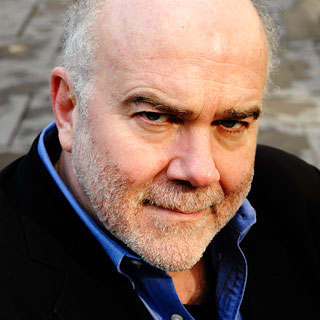
William Holmes Buford is an American author and journalist. He is the author of the books Among the Thugs and Heat: An Amateur's Adventures as Kitchen Slave, Line Cook, Pasta-Maker, and Apprentice to a Dante-Quoting Butcher in Tuscany. Buford was previously the fiction editor for The New Yorker, where he is still on staff. For sixteen years, he was the editor of Granta, which he relaunched in 1979. He is also credited with coining the term "dirty realism".
Literary realism is a literary genre, part of the broader realism in arts, that attempts to represent subject-matter truthfully, avoiding speculative fiction and supernatural elements. It originated with the realist art movement that began with mid-nineteenth-century French literature (Stendhal) and Russian literature. Literary realism attempts to represent familiar things as they are. Realist authors chose to depict every day and banal activities and experiences.
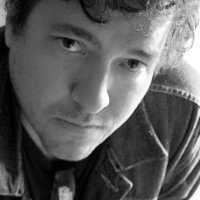
Michael Hemmingson was a novelist, short story writer, literary critic, cultural anthropologist, qualitative researcher, playwright, music critic and screenwriter. He died in Tijuana, Mexico on 9 January 2014. The reported cause was cardiac arrest.

Grunge lit is an Australian literary genre usually applied to fictional or semi-autobiographical writing concerned with dissatisfied and disenfranchised young people living in suburban or inner-city surroundings, or in "in-between" spaces that fall into neither category. It was typically written by "new, young authors" who examined "gritty, dirty, real existences", of lower-income young people, whose egocentric or narcissistic lives revolve around a nihilistic or "slacker" pursuit of casual sex, recreational drug use and alcohol, which are used to escape boredom. The marginalized characters are able to stay in these "in-between" settings and deal with their "abject bodies". Grunge lit has been described as both a sub-set of dirty realism and an offshoot of Generation X literature. The term "grunge" is a reference to the US rock music genre of grunge.

Carol Sklenicka is an American biographer and literary scholar known for her authoritative, full-scale biographies of two important figures in late twentieth-century American literature: acclaimed short story masters Raymond Carver and Alice Adams.
Lydia Peelle is an American fiction writer. In 2009 the National Book Foundation named her a "5 under 35" Honoree.
References
- ↑ Dirty Realism's Other Face|Sydney Review of Books
- ↑ "Definition: Dirty Realism". Online dictionary service in English, Spanish, German and other languages by. 20 July 2008. 30 Dec. 2008
- ↑ Buford, Bill (1983-06-01). "Editorial". Granta Magazine (8). Archived from the original on 2017-12-09. Retrieved 2024-08-05.
- ↑ themodernnovel.org
- ↑ "Dustin Hoffman kicked out of Sardi's during 'Midnight Cowboy' filming". 2021-03-27. Retrieved 2023-06-13.
- ↑ Hemmingson, Michael (2008). The Dirty Realism Duo: Charles Bukowski and Raymond Carver on the Aesthetics of the Ugly. The Milford Series: Popular Writers of Today, 70. San Bernardino, Ca: The Borgo Press. ISBN 1-4344-0257-6.
- ↑ "Wolf, Tobias. "Our Story Begins excels in dirty realism | Metro.co.uk." | Metro.co.uk. 20 July 2008. 30 Dec. 2008". Archived from the original on 17 April 2020. Retrieved 30 December 2008.
- ↑ Jarvis, Brian, "How Dirty is Jayne Anne Phillips?" Yearbook of English Studies, 2001 Annual.